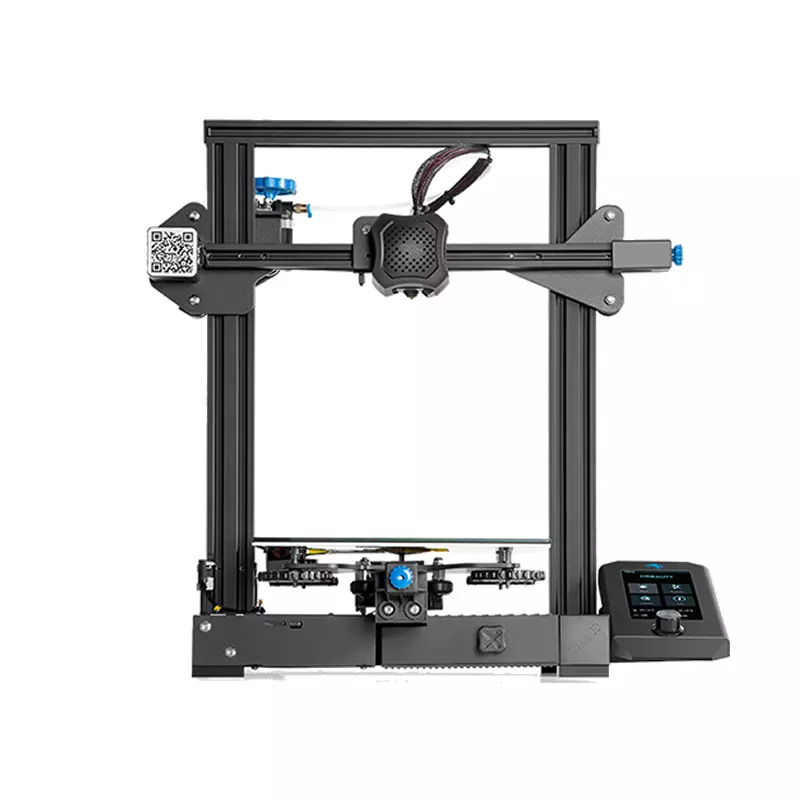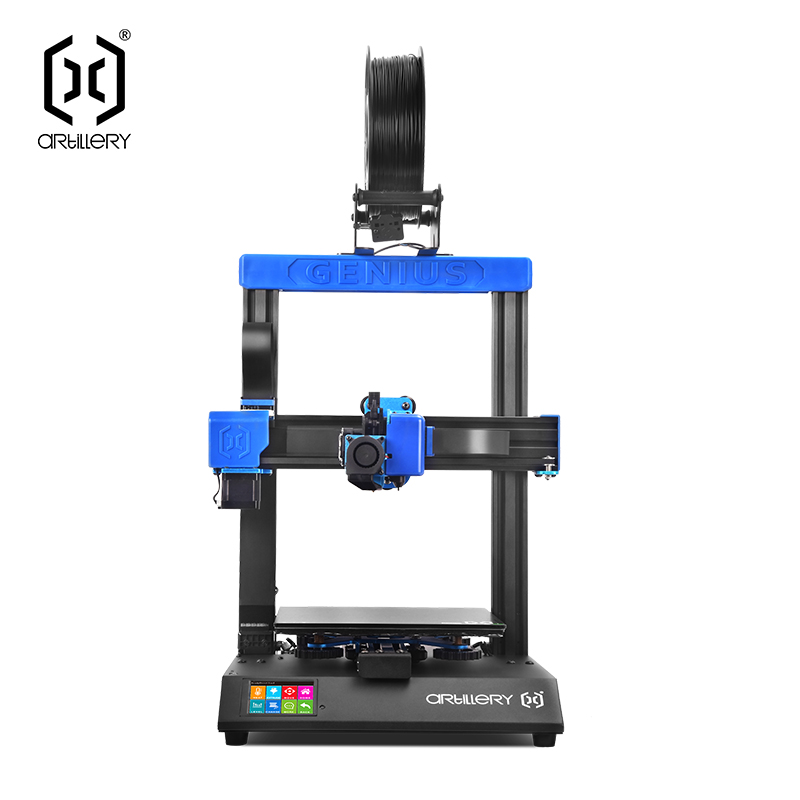Compare Ender 3 V2 vs Genius Pro
Comparison between the best 3D printers
Choose the best 3D printer at the best price. The cheapest 3D printers are here.
Buy a 3D printer here with 3D Fila.
 |
 |
|
| Model | Ender 3 V2[BUY Ender 3 V2] |
Genius Pro[BUY Genius Pro] |
| Printing Material | Filament | Filament |
| Buy Filament for Creality 3D Ender 3 V2 | Buy Filament forArtillery Genius Pro | |
| Estimated price | $289,00 | $309,00 |
| Manufacturer | Creality 3D | Artillery |
| Release Year | 2022 | 2022 |
| Print Volume [mm] | 220x220x250 | 220x220x250 |
| Printer Size [mm] | 470x475x620 | 430x390x590 |
| Weight [kg] | 7,8 | 9,6 |
| Power Loss Recovery | YES | YES |
| Enclosed printer | NO | NO |
| Bed Leveling | Manual | Automatic |
| Filament End Sensor | NO | YES |
| Bed type | Heated | Heated |
| Power supply system | Bowden | Direct Drive |
| Standard nozzle | 0,4 | 0,4 |
| Maximum Nozzle Temperature [°C] | 255 | 240 |
| Maximum Bed Temperature [°C] | 100 | 120 |
| Maximum printing speed [mm/s] | 180 | 150 |
| Filament holder | YES | YES |
| Camera for supervision | NO | NO |
| Recommended filaments | PLA, TPU, ABS, PETG | PLA, PETG, Tritan, Flex, ABS |
| Recommended slicers | Cura, Simplify, Slic3r | Cura, Simplify, Slic3r, IdeaMaker |
| Maximum Resolution [mm] | 0,1 | 0,1 |
| Processor | 32 bits | Ruby 32bit |
| Display | Touchscreen TFT 4,3'' | Touchscreen TFT 3,5'' |
| Power Supply | 24V / 360W | |
| Connectivity | SD / USB | SD / USB |
| Operating systems | Windows, Mac, Linux | Windows, Mac, Linux |
| Date of registration in the system | 2021-04-15 | 2022-11-07 |
| Release date | 2022 | 2022 |
| Extra features | The Creality Ender-3 V2, with a design inspired by the Prusa i3 series, stands out for its DIY assembly structure. With an area of ??250x250x250mm, it supports a variety of projects. It has a micro-USB port, microSD slot and integrated tool drawer. The tension adjustment adapts to different regions. Its manual print bed leveling process requires attention, but offers an enriching experience. Ideal for 3D printing enthusiasts willing to invest time in assembly and adjustment. | The Artillery Genius Pro is a standout 3D printer with a fast-heating AC tempered glass print bed and a sleek design with a black aluminum base and blue accents. It features a Titan-style direct extruder and a 32-bit Ruby mainboard. Despite its advanced feature set, it struggles to maintain print quality, requiring frequent adjustments and calibrations, and its glued glass bed makes cleaning and replacement difficult. |
| Support for multiple colors and materials (AMS and CFS) | NO | NO |
Notes * |
||
| Cost-benefit | 7 / 10 | 7 / 10 |
| Hardware | 1.8 / 10 | 2.4 / 10 |
| Tela | . | . |
| Print volume | 3 / 10 | 3 / 10 |
| Performance | 1 / 10 | 1 / 10 |
| [BUY Ender 3 V2] | [BUY Genius Pro] |
Conclusion |
| In comparing the Ender 3 V2 and the Artillery Genius Pro, several key factors emerge that could influence your decision based on your specific needs and budget. Both printers have the same build volume and are similarly priced, making them appealing options for budget-conscious enthusiasts. However, the Ender 3 V2 edges out slightly in terms of manual bed leveling, which may be more suitable for users who enjoy the intricacies of DIY assembly and tuning. Its robust community support and vast array of modifications available further enhance its appeal for those looking to grow and explore in 3D printing. On the other hand, the Artillery Genius Pro offers notable advantages with automatic bed leveling and a direct drive extruder, making it easier to handle a wider range of filaments. Its quicker heating bed is a plus for users who prioritize efficiency. However, users may face challenges with print quality maintenance and have to deal with a glued glass bed that complicates cleaning and replacement. Ultimately, both printers have valid strengths. If you value ease of use and do not mind making adjustments for print quality, the Genius Pro could be a better fit. Conversely, if you're inclined toward hands-on assembly and community-driven modifications, the Ender 3 V2 would likely serve you well. Your choice should reflect your printing experience level, willingness to engage in manual calibration, and preference for feature sets. |

